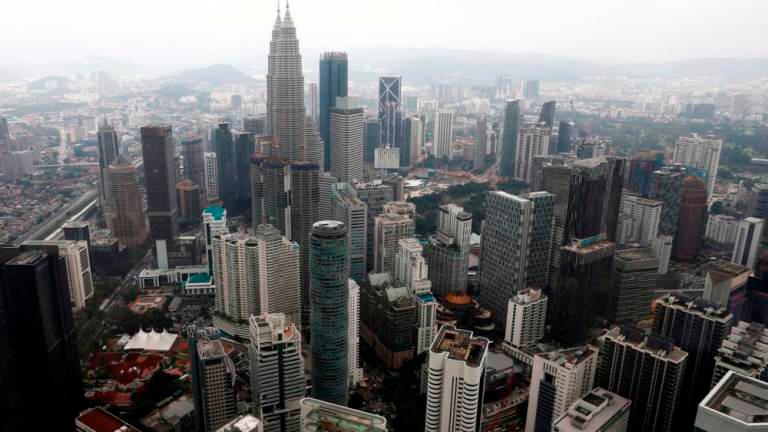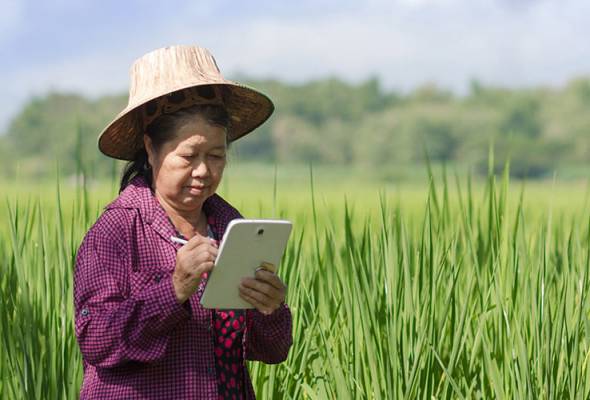
Published by The Sun Daily, image from The Sun Daily.
In order to emerge as a winner in the “new normal” and in an increasingly conflict-ridden world, Malaysia needs competent leadership, stable and empathetic government, as well as an innovatively adaptive economy.
It also requires a new societal framework that ultimately serves the people and prioritisation of natural security and sovereignty issues whilst balancing the needs for global solidarity.
Looking at Malaysia’s commodity-based economy, major industries must improve downstream product diversification and businesses must innovate through digital transformation.
Malaysia’s oil and gas and palm oil industries are generally upstream-heavy in the value chain. A lot of these products can be feedstocks for even higher value, downstream consumer end products. Emphasis on scale of lower value products in one basket has proven non-resilient and a risky model.
Bad Ideas Report 2020 by Ark Invest points to potential revolution in conventional transport in the US, whereby oil demand is expected to drop significantly with the adoption of electric vehicles and autonomous technologies. It is reasonable to extrapolate this effect globally.
There have been moves by major oil and energy players to divest upstream assets, and invest in renewable energy, but relatively less so in renewable chemicals. Downstream petrochemicals are ubiquitous building blocks used in many materials in our daily life. Therefore, renewable alternatives to petrochemicals remain a relatively untapped opportunity.
Palm oil is another major export product that has faced significant market restrictions, and economic forces have been causing severe fluctuations in commodity palm oil prices, further exacerbated by climate-caused productivity issues.
Downstream oleochemicals businesses are well established, but similar to petrochemicals, these too can be raw materials for higher value niche consumer end products.
Sime Darby Plantation and FGV Holdings have shown exemplary industry leadership through jointly exploring renewable chemicals and advanced materials with the support of forward-looking agencies and investment arms such as MIGHT and VentureTECH.
Other plantation companies need to follow suit.
Malaysia’s political and industry leaders must be visionary, instead of being reactive to market changes and shifts of global power.
That being said, the Covid-19 pandemic has shown how global supply chains have been disrupted, highlighting the importance of speed in innovation and supply chain security.
This is particularly true for Malaysia’s electrical and electronics (E&E) sector, which is the country’s largest export driver.
Other industry players need to follow the digital transformation and Fourth Industrial Revolution technology adoption in E&E, as led by Ministry of International Trade and Industry via its Industry4WRD initiative.
A group that is in dire need of adaptation and innovation is the small and mid-size enterprises (SMEs).
Annual SME Report 2018/2019 by the National Entrepreneur and SME Development Council showed SMEs represent a staggering majority (98.5%) of businesses with a massive 38.3% contribution to national GDP, providing 66.2% of national employment in 2018.
Yet, findings by SME Corp and Huawei Technologies in 2018 showed that half of SME respondents invest in technology as a competitive tool to increase revenue, with 30% of the SMEs not adopting technology as a business enabler.
With the pandemic accelerating digital migration, Malaysian SMEs cannot afford to be left behind.
Tech start-ups and existing SMEs should fully utilise programmes under the overarching National Digital Economy Masterplan spearheaded by Malaysian Digital Economy Corporation (MDEC) and the National Technology Innovation Sandbox spearheaded by Ministry of Science, Technology, and Innovation. These initiatives provide accelerated access to the various promotional and funding agencies.
Additionally, Malaysia must expand in areas where it could play a unique and leading role in the global arena.
As an exemplary progressive Muslim-majority country, Malaysia should be the global hub for the halal industry and Islamic fintech.
With one of the oldest rainforests and the richest biodiversity in the world, Malaysia should protect its ecological assets under national security, and capitalise on this to become a hub for natural drug discovery and eco-tourism.
Malaysia should also aspire to be a model for the amalgamation of nature and technology.
A nationwide theme harmonising tech and nature at the heart of nation-building and architecture not found anywhere in the world. This sets Malaysia apart as a unique, global eco-tech tourism hotspot.
As a country rich in culture and creative arts, the creative economy must embrace “createch”.
Coined by the UK’s Creative Industries Council, this refers to the emerging field of creating new products, services or experiences through a technology-enabled creative sector, and vice versa.
This sector generated similar portion of jobs for Indonesia’s and Malaysia’s populations at 6% and 5.7% respectively, but it accounted for 7.8% of Indonesia’s GDP and, according to Department of Statistics, only 2% for Malaysia.
This indicates that the potential of Malaysia’s creative sector is not fully realised – a notion also shared by chief statistician Datuk Seri Dr Mohd Uzir Mahidin.
Recognised as a global medical tourism hub, this is the time for Malaysia’s healthcare tourism to enhance and expand its services by embracing health tech such as remote diagnosis and monitoring, robotic remote surgery, telemedicine, digital records and artificial intelligence.
James Manyika, chairman and director of McKinsey Global Institute, pointed out that the pandemic-driven crisis has caused people to look at economy and society from a new angle, which may span revisions of key elements of incumbent economic models to the role of government and institutions.
Manyika’s views resonate well with the need for future society that puts people and the environment at the heart of technological revolution. This is precisely what Malaysia 5.0 – inspired by Japan’s Society 5.0 and championed by MDEC chairman Datuk Dr Rais Hussin – envisions for Malaysia.
Of course, Malaysia has some work to do. Based on the latest IMD World Digital Competitiveness Ranking in 2020, Malaysia maintains its ranking at number 26 out of the 63 reported countries.
Though it outperformed most key Asean countries, the unchanged ranking indicates unsatisfactory digital adoption to meet the criteria for increased competitiveness.
Ahmad Ameen Mohd Kamal is Head of Science and Technology at EMIR Research, an independent think tank focused on strategic policy recommendations based on rigorous research.

